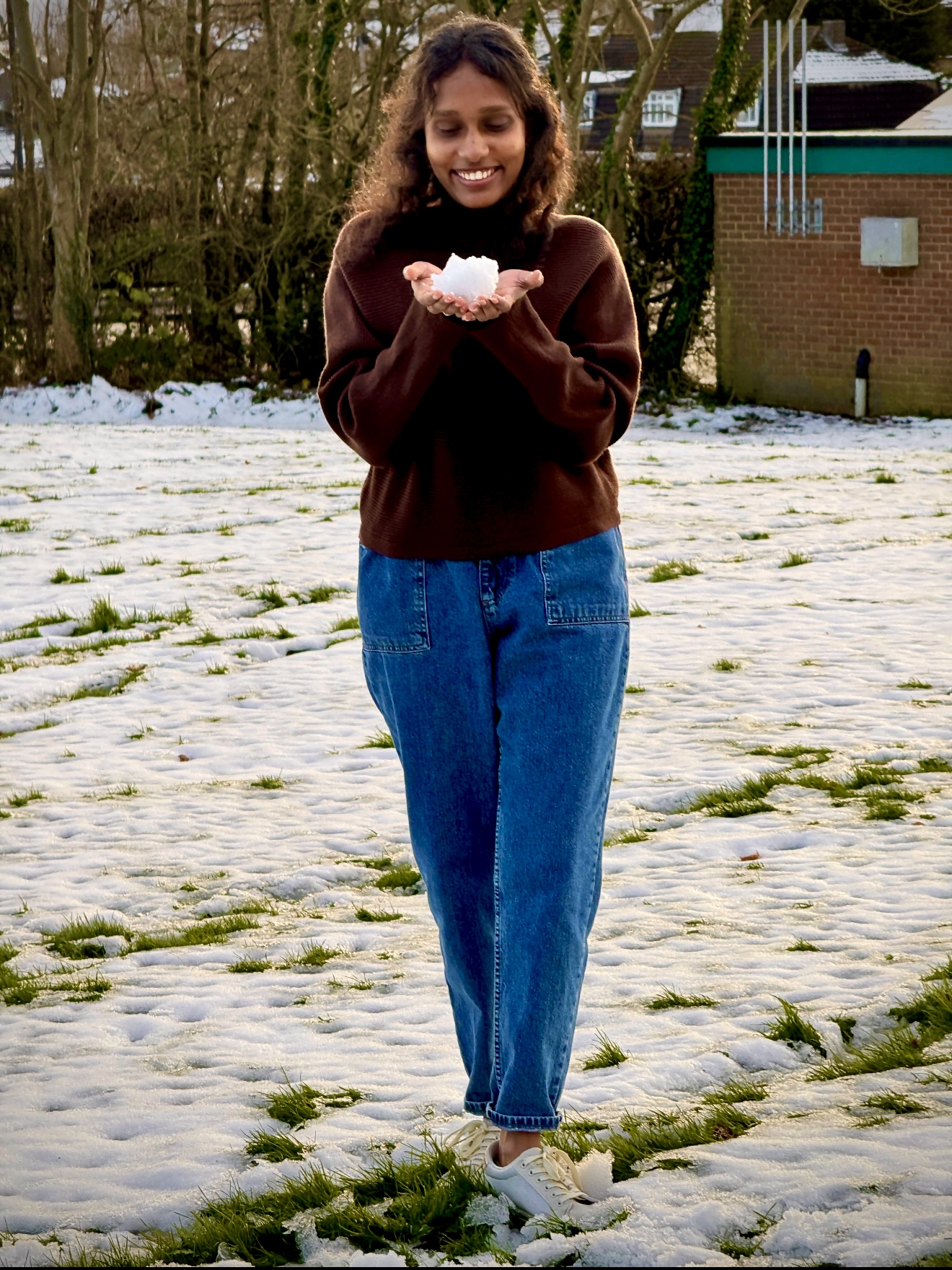Published on: 24 December 2024
As the nation braces itself for the chance of a white Christmas, a group of Derbyshire Healthcare nurses are excitedly anticipating more snow.
After arriving from India in summer to work as mental health nurses at Derbyshire Healthcare NHS Foundation Trust, Ansha Sasi, Sona Varkey, Abirami Indra, Athira Devadasan and Riya Raju saw snow for the first time in November – and are eager for more.
“None of us had seen snow before so it was really exciting,” said Abirami. “As soon as we could, we were outside having a snowball fight and making snowmen.”
The novelty has not yet worn off, although Ansha did fall foul of the British weather on a trip to Blackpool to meet friends in October.
She laughs and admits: “I wore shorts. It was so cold I had to buy some trousers.”
But the weather is just the tip of the iceberg when it comes to adapting to a new lifestyle and strict working requirements.
Ansha, Sona, Abirami, Athira and Riya, all aged 24 and 25, all had nursing degrees when they decided to apply to work for the NHS in the UK.
Sona said: “I really wanted to work here because here in the UK we give so much respect to the patients and they have more say in their treatment.”
Abirami agreed: “For many people in India, there is a lot of stigma around mental health issues so they don’t seek treatment until they are in crisis. It’s good that people are more open here. There are a lot of differences to how care is offered which made me want to come here.”
The five nurses met on an NHS training programme in India. To qualify to work here, they had to pass interviews along with further tests in nursing and the English language… not to mention the Derbyshire dialect.
Once here, they worked as healthcare assistants while studying for the Observed Structured Clinical Examination (OSCE).
As well as studying for the exam and working full time, they had to learn about working in mental health and how the NHS operates and get used to life in the UK.
It’s a challenging move, which is why Derbyshire Healthcare tried to make the transition as smooth as possible, beginning with video calls to help the nurses meet the teams before they travelled.
They’ve been supported by a Trust team including Suzanne Pancisi and Emma Bailey. Suzanne who met them at the airport and Emma provided them with an initial supply of food. In their first few days, Suzanne and Emma took the new arrivals shopping, to the bank and on buses so they could find their way around. They even gave them a list of Derbyshire words such as “duck” and “poorly”.

The five nurses were particularly grateful for this level of support with their OSCE exam.
OSCE is a gruelling three-hour exam where nurses face 10 different clinical scenarios, each of which must be completed within a time limit. To remain working here, nurses must pass this within the first 12 weeks of arrival. Fewer than half pass first time, and they can only take it three times before starting the whole application process again, so the pressure was on.
Emma delivered the training over several weeks, with other staff members volunteering to act in roleplay situations.
There are only five OSCE test centres in the UK and the nearest one where they could all secure places was in Swindon. Suzanne and Emma drove the nurses to the test centre, providing moral support along the way.
Sona said: “Suzanne and Emma were very supportive. We were really anxious, so Emma did some breathing techniques with us on the way. The friends we met on the course who work in other parts of the country didn’t get any support.”
Happily, all five passed first time and are now enjoying working as mental health nurses at the Hartington Unit in Chesterfield and due to transfer to the newly built Derwent Unit next year.
The nurses have toured the new facilities to see where they will be working and were all impressed by the single bedrooms with private bathrooms.
“It’s great. We don’t have anything like that in India,” said Athira.
As well as single bedrooms, the new 54-bed Derwent Unit will give every inpatient the ability to adjust their lighting and temperature. The use of sensory profiling at the point of admission will enable people to make the most of this innovation and ensure therapeutic activity begins from the moment someone is admitted.
As the nurses move into their permanent roles, Emma is sad that the programme is coming to an end.
“It’s been so rewarding to help them find their way their first few months in the country. All of them are really focussed and really dedicated nurses and I know they will be a great asset to our trust.”

